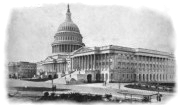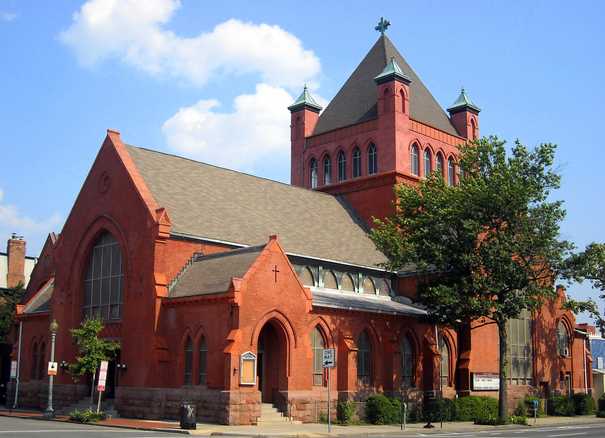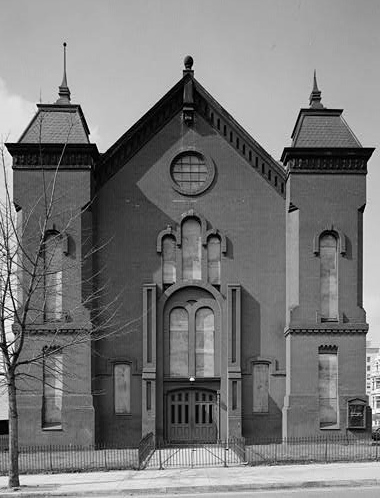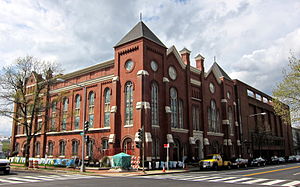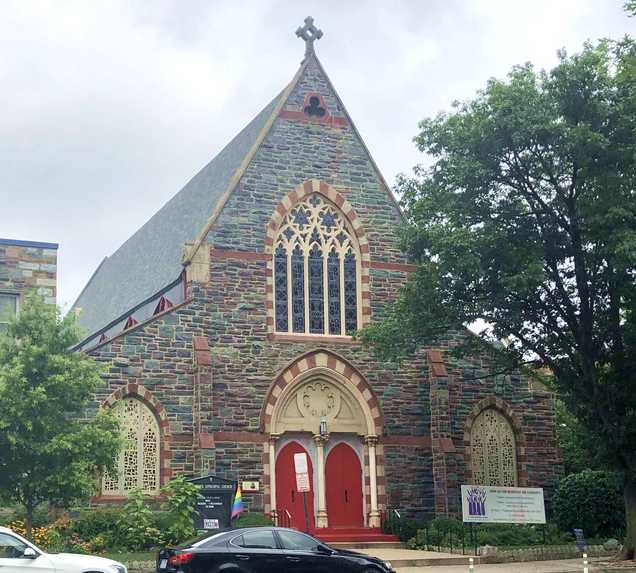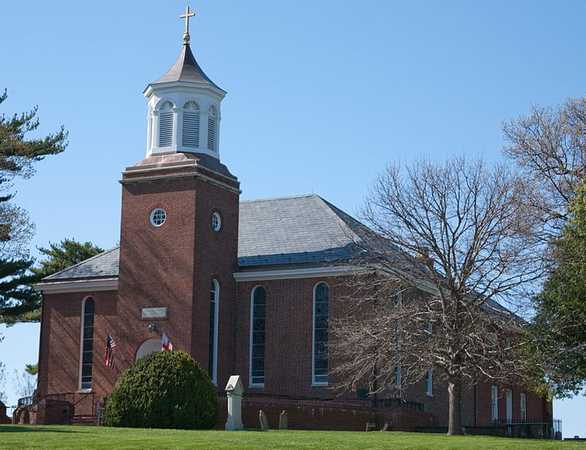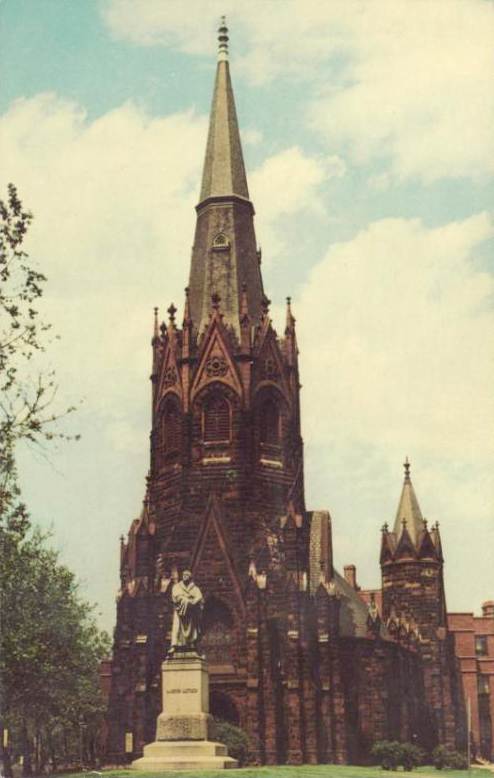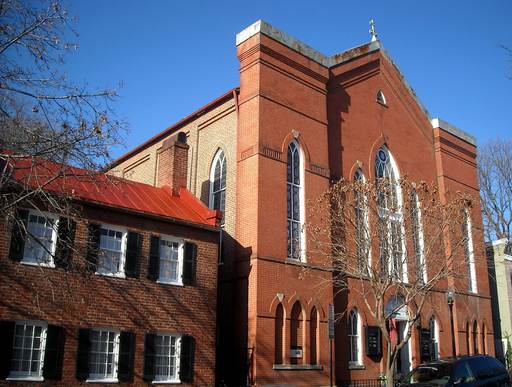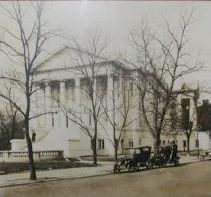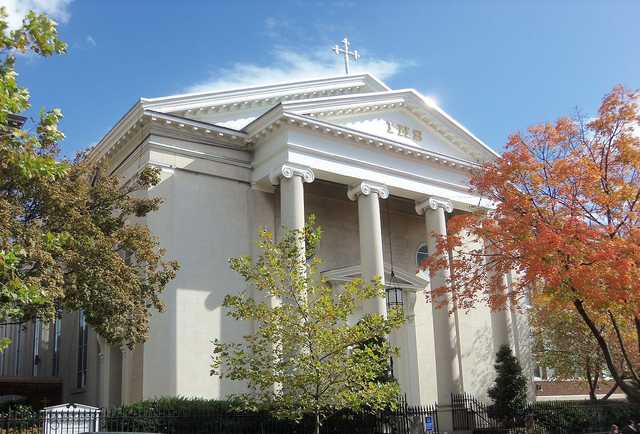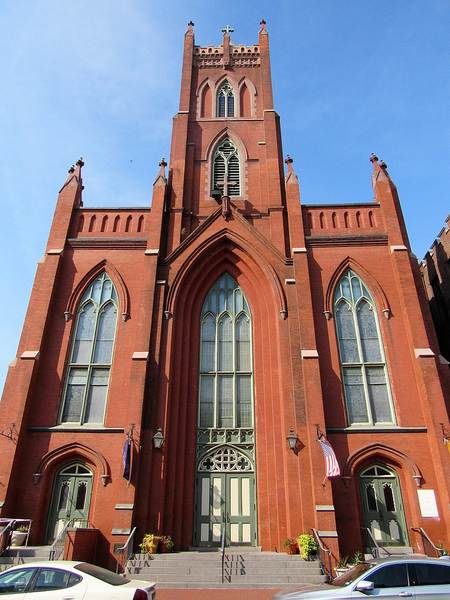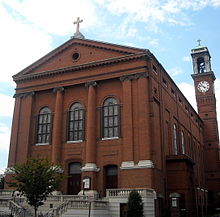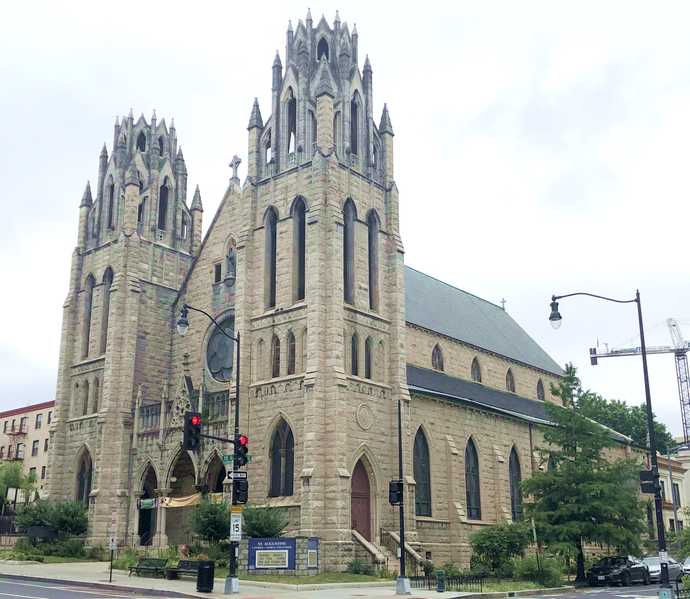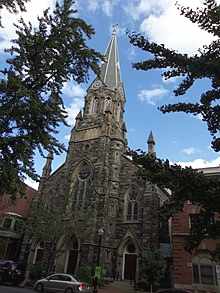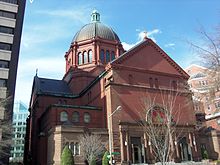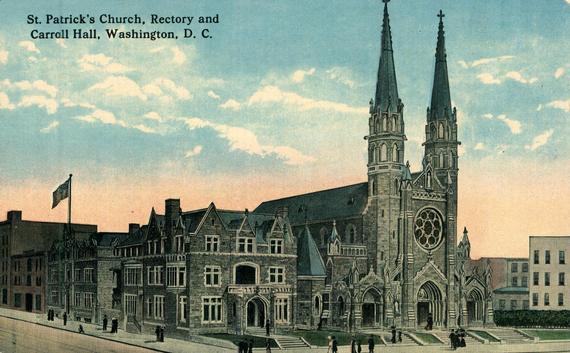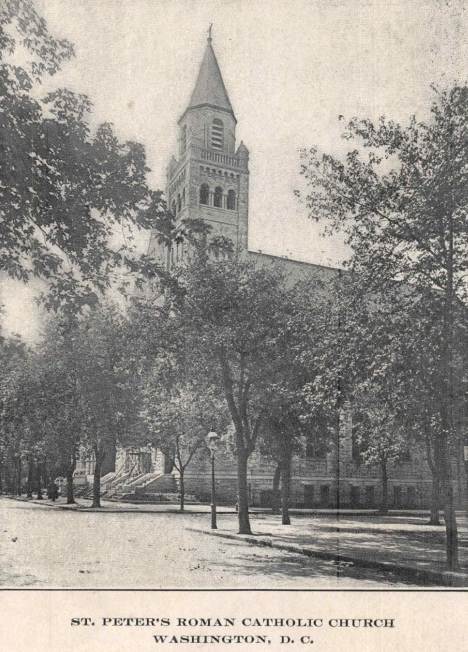Early Churches and Synagogues
An inventory of church records in DC is contained in the following publications, available at the Library of Congress, Washington Historical Society, and Washingtoniana Collection of Martin Luther King Library, among other sources: A Directory of Churches and Religious Organization in the District of Columbia, 1939, and Inventory of the Church Archives in the District of Columbia: the Protestant Episcopal Church, Washington Diocese. These two inventories were done under WPA auspices.
The older houses of worship in the District include, but are not limited to, the following. Many thanks to Jane Donovan for contributions related to the Methodist Churches and Cemeteries of the DC & Georgetown area.
Episcopal
The Episcopal Diocese of Washington, Tel: (202) 537-6555 can advise on merging of churches, successor congregations and general local church history matters. For help with records of churches no longer in existence, contact Susan Stonesifer, Historiographer. In addition, transcribed records for many area churches are in the Genealogical Records Committee volumes for DC at the DAR Library.Methodist
The Wesley Theological Seminary Library on Massachusetts Avenue, Tel: (202) 885-8695 has extensive collections on the history of the Methodist Church, including records of the former Methodist Protestant Church. They can generally advise where a church's name has changed, or on the name of a successor church when congregations have merged, and they have several parish membership rosters from the late 19th - early 20th century.Roman Catholic
The Archdiocese of Washington, Tel: (301) 853-3800, can advise on early Catholic history, consolidation of parishes, dates of creation of new parishes and on the location of records. They can also assist genealogists tracking relatives who joined various Catholic religious orders. The Special Collections Division of the Georgetown University Library has extensive records of the early Catholic church in Maryland, specifically of the Jesuits. The early parish registers of Holy Trinity Church and the plot book of Holy Rood Cemetery are in this library.Seventh Day Adventists
Archive in Silver Spring, MD , tel. (301) 680-5020. Has records of some member obituaries from Adventist publications.Various Germanic Denominations
The Menno Simons Historical Library in Harrisonburg, VA , tel: (540) 432-4178, has some church records of interest to those with DC German ancestry, including records of the Reformed Church, Lutheran Church and Anabaptists in Virginia, Maryland and Pennsylvania, and can advise on the history of particular churches and potential successor churches.In the old book "Reminiscences of the District of Columbia or Washington City Seventy-Nine Years Ago, 1830-1909" by early DC resident Sarah E. Vedder she mentions many of the old churches which existed in the DC area during the years that she resided there. Perhaps you will find one of the tidbits of information she related in her book helpful in your research.
Mrs. Vedder begins on page 69 of her book describing various DC churches of the period as follows:
At this time the churches were not very numerous. The oldest one, I suppose, was the Foundry, corner Fourteenth and G Streets. Dr. Laurie's Presbyterian Church, on F, between Fourteenth and Fifteenth. Rev. Obediah B. Brown's Baptist, on Tenth, between F and G, next north of the Medical College and in the neighborhood of Ford's theatre, where Lincoln was assassinated in after years. St. Patrick's Catholic, corner Tenth and G, with Female Orphan Asylum opposite, or nearly so. The Methodist Protestant, or Radical Church, on Eleventh Street, between F and G. I remember going to that church one Sabbath evening to listen to the Rev. Thomas Stockton, his subject was: "Beauties of the New Jerusalem." He was very tall and slender and, as he stood in the pulpit, looked ghostly. He held the attention of the congregation more than two hours. At any time you could have heard a pin fall. The people were packed like sardines in a box, more than three-fourths were standing. When he ended, his voice almost in a whisper, his arms elevated, he looked as if he were ready to ascend to the beautiful land he had so eloquently described. Everyone drew a long breath, or sigh, and retired from the church without remark.
Dr. Gurley's Presbyterian, corner New York Avenue and H Streets. St. Matthew's Catholic, corner H and Fourteenth. St. John's Episcopal, corner Fifteenth and a half and H, called Parson Hawley's Church. Asbury Chapel, Negro Methodist, northeast from St. Matthew's. Ryland Chapel, Methodist, in the "Northern Liberties." Union Chapel, Methodist, corner Twentieth and H. Colored Baptist Church, corner Nineteenth and T. The German Lutheran, on G, between Nineteenth and Twentieth. The Union Chapel and St. Matthew's were new, scarcely finished at this time. There was a Unitarian Church, and another, called the Metropolitan Methodist, in the neighborhood of the City Hall, or, on Four and a half street, in the eastern part of the city."

